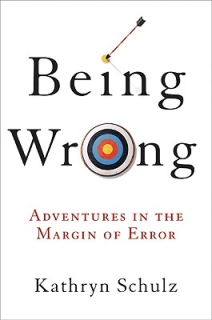- HOME
- INTRO TO THE FORUM
- USE AND MISUSE
- BADLY WRITTEN, BADLY SPOKEN
- GETTING
TO KNOW ENGLISH - PREPARING FOR ENGLISH PROFICIENCY TESTS
- GOING DEEPER INTO ENGLISH
- YOU ASKED ME THIS QUESTION
- EDUCATION AND TEACHING FORUM
- ADVICE AND DISSENT
- MY MEDIA ENGLISH WATCH
- STUDENTS' SOUNDING BOARD
- LANGUAGE HUMOR AT ITS FINEST
- THE LOUNGE
- NOTABLE WORKS BY OUR VERY OWN
- ESSAYS BY JOSE CARILLO
- Let’s Come To Grips With The Proper Use Of“However”Once And For All
- How English Makes Do To Evoke The Sense Of The Past Imperfect
- When It Greatly Matters What English Accent We've Acquired
- A Potent Tool For Whittling Down Complex Sentences Into Simple Ones
- A Unified Approach To The Proper Use Of Punctuation In English
- A Unified Approach To The Proper Use Of Punctuation In English - II
- ABOUT JOSE CARILLO
- READINGS ABOUT LANGUAGE
- TIME OUT FROM ENGLISH GRAMMAR
- NEWS AND COMMENTARY
- BOOKSHOP
- ARCHIVES
TIME OUT FROM ENGLISH GRAMMAR
This section features wide-ranging, thought-provoking articles in English on any subject under the sun. Its objective is to present new, mind-changing ideas as well as to show to serious students of English how the various tools of the language can be felicitously harnessed to report a momentous or life-changing finding or event, to espouse or oppose an idea, or to express a deeply felt view about the world around us.
The outstanding English-language expositions to be featured here will mostly be presented through links to the websites that carry them. To put a particular work in better context, links to critiques, biographical sketches, and various other material about the author and his or her works will usually be also provided.
It’s nice to be right, but being wrong also has social value
After the seemingly endless parade of public fiascoes, official bungling, and erroneous pronouncements in our part of the world during the past five weeks, it just might be timely for us to ask: Is there virtue in making mistakes? Would there be any social value somehow in being publicly wrong and repeatedly at that? And should we forever simper and cower in shame because of the persistent or recurrent errors of our ways?
Some persuasive answers to these questions are offered by Kathryn Schulz in her recently released book, Being Wrong: Adventures in the Margin of Error (Ecco/Harper Collins, 416 pages). An American journalist who half-seriously claims to be the world’s leading wrongologist, Schulz argues that error is the fundamental human condition and should be celebrated as such. To prove her point, she meticulously goes through the history and psychology of error from the time of Socrates to the present day.

Schulz punches holes at the human propensity to claim to be always right. “As a culture, we haven’t even mastered the basic skill of saying ‘I was wrong’,” she says in her book. “This is a startling deficiency, given the simplicity of the phrase, the ubiquity of error, and the tremendous public service that acknowledging it can provide…(A)ll we really know how to do with our errors is not acknowledge them as our own.”
In “The Errors of Our Ways,” a review of Being Wrong in the July 23, 2010 issue of The New York Times, Harvard University psychology professor Daniel Gilbert says that Schulz draws on a wide pool of informants to give the reader a scientific tour of everyday wrongness that includes optical illusions, memory failures, neurological deficits, and irrational beliefs. “From the expository first half through the character-driven second, Schulz remains good company — a warm, witty and welcome presence who confides in her readers rather than lecturing them,” Gilbert says.
On the other hand, in a review of Being Wrong in the August 28, 2010 issue of The Guardian in the UK, British writer Stuart Jeffries is cheered by Schultz’s proposition that people should be optimistic when they find themselves in the wrong because as her argument goes, to be wrong allows them to depart from the facts into being creative in their own lives. “Schulz’s self-styled discipline of wrongology contains a great deal of lightly worn learning and careful reflection on psychoanalysis, philosophy, science and art,” Jeffries says.
Read an excerpt from Kathryn Schulz’s Being Wrong in the NPR.org website now!
Read Daniel Gilbert’s “The Errors of Our Ways” in The New York Times now!
Read Stuart Jeffries’ review of Being Wrong in The Guardian UK now!
ABOUT THE AUTHOR:
Kathryn Schulz, who lives in New York, has written for The Nation, Rolling Stone, and the New York Times Magazine, among other publications. A former editor of the online environmental magazine Grist and the Santiago Times in Chile, she was awarded a Pew Fellowship in International Journalism in 2004.






